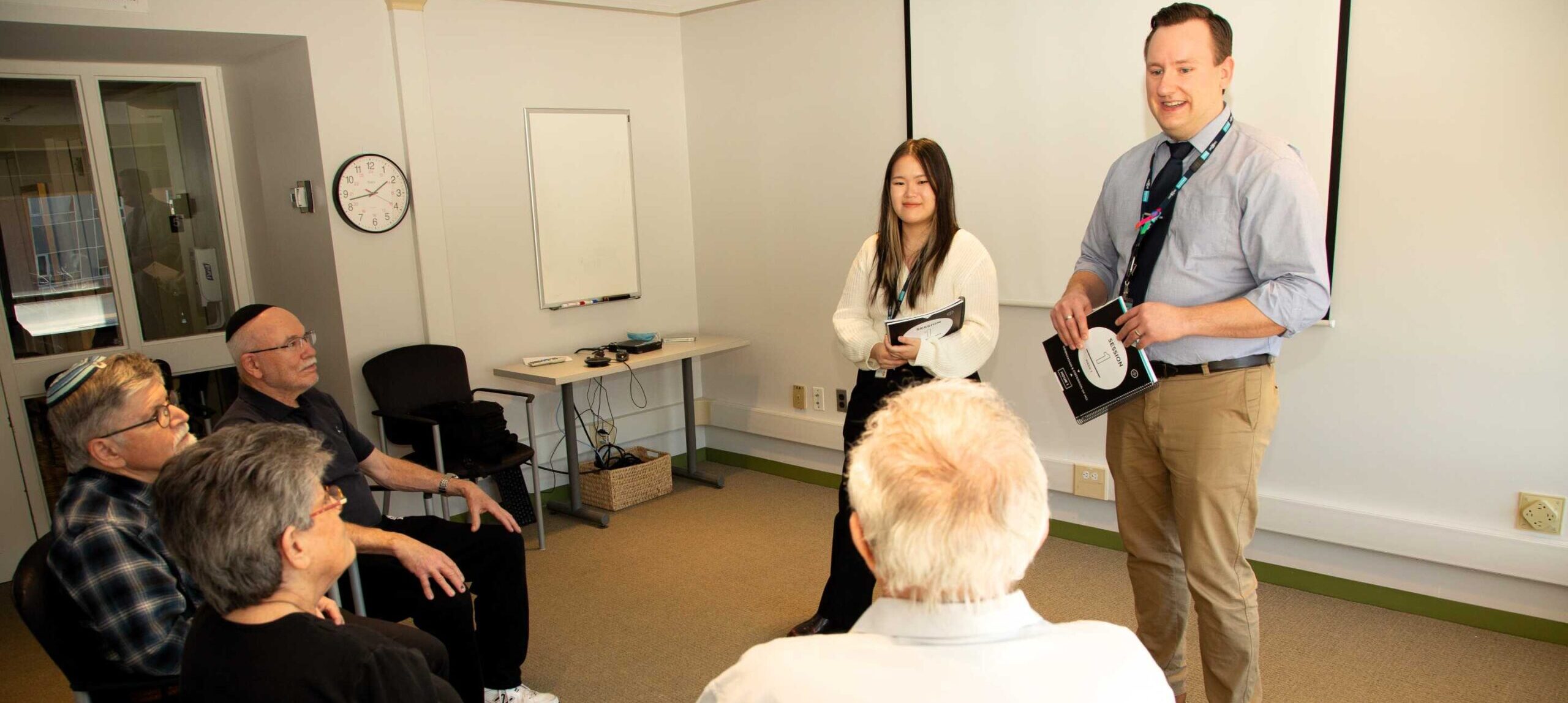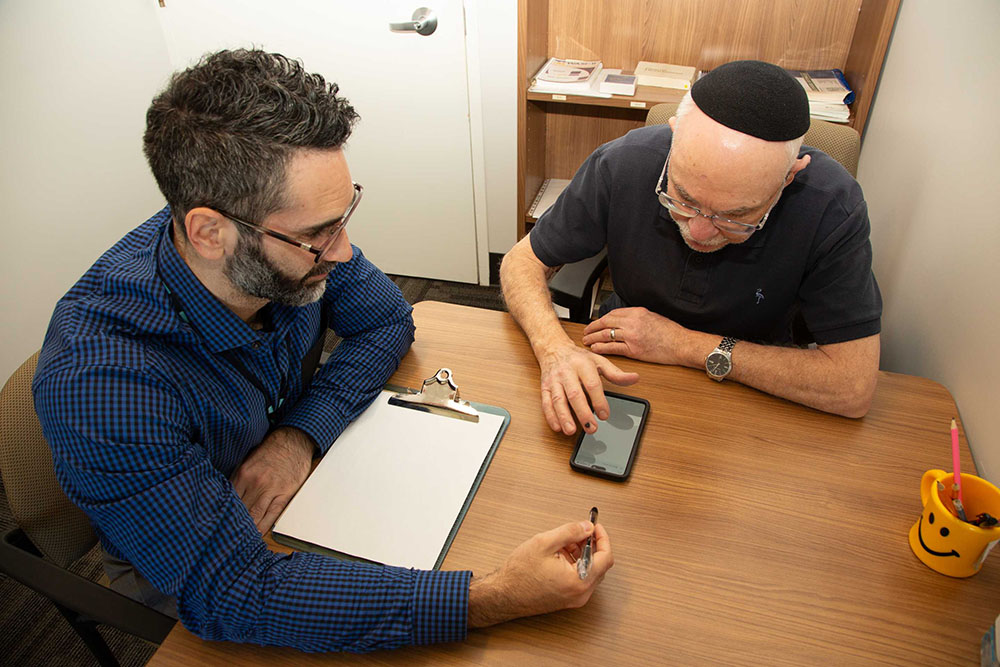
Learning the Ropes for Living with MCI ®
Learning the Ropes for Living with MCI ® is a group program that teaches older adults with mild cognitive impairment (MCI) how to improve their brain health.
It is normal to have some decline in your ability to think and remember things as you age. MCI refers to cognitive decline that is more than what is expected for your age, but not enough to significantly impact your independence.
The main goal of our program is to help people with MCI lower their risk of developing dementia through training, education and support.
We will cover the following topics:
- Memory training to help you with everyday remembering
- How stress, diet and activities affect your memory
- How family can offer more support
Our program is open to people who are more than 50 years old living with MCI and a friend or family member.
Learn more about the program with our Learning the Ropes Foundations webinar which is available in English, French and Spanish.
This training program is offered by the Neuropsychology and Cognitive Health Program at Baycrest.
Learn more
There is a program fee of $150 that covers both you and a friend or family member and one workbook. If a friend or family member is attending, we recommend buying a second workbook for $20 when registering. Some private health insurance plans may cover the program fee. Financial assistance may be available, if needed.
Our program takes place in small groups that either meet in-person or virtually.
You will meet weekly for two hours for a total of six weeks. There is then one last follow-up session one month later.
People who have attended our program report improved practical memory and confidence. Family members say they feel less worried and better prepared.
- A computer or tablet and reliable internet connection (for virtual sessions)
- A pen and paper
- The provided workbook
You will need a referral from a health-care provider located anywhere in Ontario.
Please fax this referral form (PDF) to 647-788-2199. And please attach any relevant clinical information (such as cognitive screening scores) or consultation reports (such as from neurology or neuropsychology).
What are the benefits of Learning the Ropes with MCI?
This program helps people with mild cognitive impairment improve their functional memory and feel more confident. They can also learn what they can do to support their brain health and slow cognitive decline.
Who can join this program?
This program is open to residents of Ontario who are 50 or older with mild cognitive impairment. Participants must be functionally independent with no diagnosis of dementia and referred by a health-care provider.
Location
Baycrest
3560 Bathurst Street
Neuropsychology and Cognitive Health
Contact
Phone: 416-785-2500 ext. 2445
Fax: 647-788-2199
Email: [email protected]
Hours
Monday to Friday
9 a.m. to 5 p.m.



